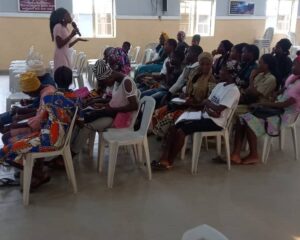Instituting Sustainable Public Data Governance in Nigeria
Well enacted and streamlined wave of opportunity are being offered young budding professionals in developing nations by forward thinking nations particularly the Canadian and UK governments. It is noteworthy that this concerted drive did not emanate from a need to advance international relations or good diplomatic intentions. It is strictly borne out of sheer demographic policy which in turn is ‘instigated’ by the wholesome process of data collection, collation and analysis.
On a norm, well instituted and developed nations would frequently rebase policy directions to drive medium and long term national goals. For them, its never a call to action but a mandatory action. From the perspective of the nucleus of society – the family, the gains are monumental to those who take advantage of the opportunity to live and work in well structured societies with decency, financial stability and growth as hallmark of an exit decision on the average. For the receiving nations themselves however, the gains are by no means granular as a stimulation of economic growth and development underscores the very essence for such policies.
It behooves of developing nations like Nigeria to take stock of the current wealth of human capital and how best they could be deployed to economic advantage.
This very deficiency is an act which forward thinking countries have mastered. Conceding to the potency of Data (in its broader sense) is what makes the difference.
The foundation of this practice is universal – demographic variables would be outlined and their respective numbers sourced. Down to the citizenry, the
questions are not far fetched: Does my government know I exist? Do they know where I live, Does my family matter, Is my social, economic status and my living conditions accounted? Does my government have an health insurance policy specially carved out for my economic class?
The last population census conducted in Nigeria was in 2006.
Over the past decade nonetheless, the Nigerian government has made attempts to consolidate and push for the visibility of data using the Bank Verification Number (BVN), the Permanent Voter’s Card (PVC), and more recently the National Identification Number (NIN). Sadly, it can be argued that the attendant outcome has been a duplication of efforts, wastage of public individual resources and the enforcement of hardship on the populace. The Nigerian government may have the best intention but there certainly is a strong flaw existent in planning, policy formulation and implementation moves.
There is thus an urgent need for the government to institute well caved out and directed data governance policies that will be geared towards solving the systemic growth and developmental challenges that have been the bane of the Nigerian economy.
P.S: I will be sharing a part 2 to this conversation in the coming days.







